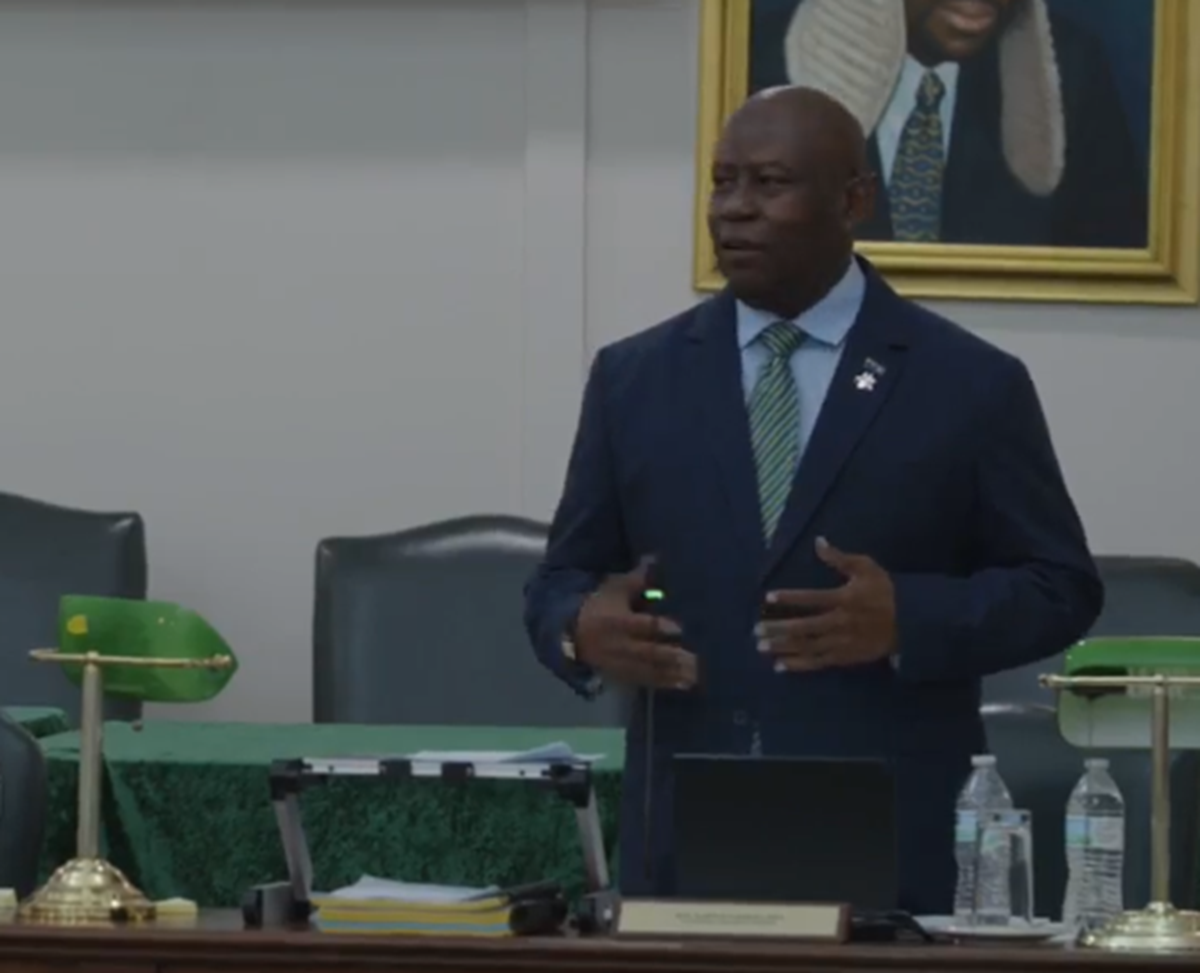By LLONELLA GILBERT
Bahamas Information Services
NASSAU, The Bahamas — A significant milestone was made in the development of bilateral relations between the Governments of The Bahamas and the People’s Republic of China by the signing of the Sister Province/Island Relationship Agreement between Grand Bahama Island and Hunan Province.
The signing took place at the Ministry of Foreign Affairs on Tuesday, April 23, 2024. The Hon. Ginger Moxey, Minister for Grand Bahama; the Hon. Dr. Michael Darville, Minister of Health and Wellness; Kingsley Smith, Parliamentary Secretary in the Ministry for Grand Bahama and Joel Lewis, Permanent Secretary in the Ministry for Grand Bahama represented The Bahamas at the signing.
His Excellency Mao Weiming, Governor of Hunan Provincial People’s Government; Qu Hai, Secretary General of Hunan Provincial People’s Government; Cui Wei, Charge d’Affaires, Embassy of the People’s Republic of China; and Yang Peiran, Interpreter represented the People’s Republic of China.
Minister Moxey explained that in February 2022, she and the former Chinese Ambassador to The Bahamas, Her Excellency Dai Qingli began discussion on the establishment of a province-island relationship between Hunan Province and Grand Bahama Island because of their “immense synergy”.
“Hunan has a vibrant creative industry and its capital city, Changsha is known as the entertainment capital of China, whilst Grand Bahama is poised to become the home of entertainment in ‘Our Bluepoint for Change’.”
She said Hunan Province boasts 11 industrial sectors and Grand Bahama is the industrial capital of The Bahamas. Further, innovation driven development has been a new driving force for Hunan, while Grand Bahama is poised to become the home of innovation for The Bahamas.
Minister Moxey said she is confident that an exchange of knowledge, ideas and culture will happen between the residents of Hunan Province and Grand Bahama.
“There is potential for robust trade in various sectors, opportunities for tourism promotion and intercultural appreciation, exchanges to support performing arts programs on our island, foster growth within the Orange Economy, and tap into China’s innovation, technology and vast expertise.”
She said that the formal signing aligns with the mission of Sister Cities International, which is to promote peace through mutual respect, understanding and cooperation, one community at a time.
The Minister said, “Through collaborative programs and initiatives, this connection will support the government’s vision to diversity Grand Bahama’s economy to become the Home of Maritime and Logistics, Home of Events and Entertainment and Home of Innovation.”
She noted that in addition to signing the agreement, she looks forward to Grand Bahama residents benefitting from the signing of the Cooperation Memorandum of Understanding between Central South University and University of The Bahamas (UB), which will expand educational and technical cooperation between the two universities. The northern campus of UB is located in Grand Bahama.
His Excellency Mao Weiming said although geographically far apart, China and The Bahamas are friends with mutual respect and understanding as well as sincerity.
He explained that 27 years ago, both countries established diplomatic relations and China and The Bahamas have deepened their cooperation, strengthened their friendship and carried out many activities in the field of economy, trade and people-to-people exchange.
His Excellency recalled that in August 2022, he and Prime Minister and the Minister of Finance the Hon. Philip Davis had a video conference where they both reached a consensus to cooperate in order to usher a new chapter in the relationship between Hunan and The Bahamas.
“Today, we are here to sign a sister-to-sister relationship between Hunan and Grand Bahama. It is [a] concrete move to implement our consensus reached before and also to embark on a new journey of friendly exchanges.”
our consensus reached before and also to embark on a new journey of friendly exchanges.”
He added, “By establishing the relationship of sister cities, I believe the two sides will develop further in terms of economic and trade cooperation, people to people exchange, as well as friendship, and we will embrace new opportunities and deliver concrete benefits for the two peoples.”
He explained that Hunan, which is the home town of Chairman Mao, the founder of the People’s Republic of China, has developed very advanced industries of manufacturing, agriculture, education, culture as well as tourism.
His Excellency said he believes that Hunan and Grand Bahama enjoy very broad room for cooperation.
He said, “More efforts should be made to conduct cooperation in the fields of agriculture, tourism, culture, education and the film industry so as to realize a connectivity between our two sides in terms of logistics and the platform cooperation; so as to deliver concrete benefits for the people and to make our due contribution to the bilateral relationship between China and The Bahamas.”
PHOTO CAPTION
A significant milestone was made in the development of bilateral relations between the Governments of The Bahamas and the People’s Republic of China by the signing of the Sister Province/Island Relationship Agreement between Grand Bahama Island and Hunan Province. The signing took place at the Ministry of Foreign Affairs on Tuesday, April 23, 2024. Shown from left: Qu Hai, Secretary General of Hunan Provincial People’s Government; Cui Wei, Charge d’Affaires, Embassy of the People’s Republic of China; Yang Peiran, Interpreter H.E. Mao Weiming, Governor of Hunan Provincial People’s Government; the Hon. Ginger Moxey, Minister for Grand Bahama; the Hon. Dr. Michael Darville, Minister of Health and Wellness; Kingsley Smith, Parliamentary Secretary in the Ministry for Grand Bahama and Joel Lewis, Permanent Secretary in the Ministry for Grand Bahama.
(BIS Photos/Anthon Thompson)


 TCI News1 week ago
TCI News1 week ago
 Latin America and Caribbean7 days ago
Latin America and Caribbean7 days ago
 Crime1 week ago
Crime1 week ago
 Bahamas News1 week ago
Bahamas News1 week ago
 Bahamas News5 days ago
Bahamas News5 days ago
 Caribbean News1 week ago
Caribbean News1 week ago
 Caribbean News1 week ago
Caribbean News1 week ago
 Bahamas News6 days ago
Bahamas News6 days ago























